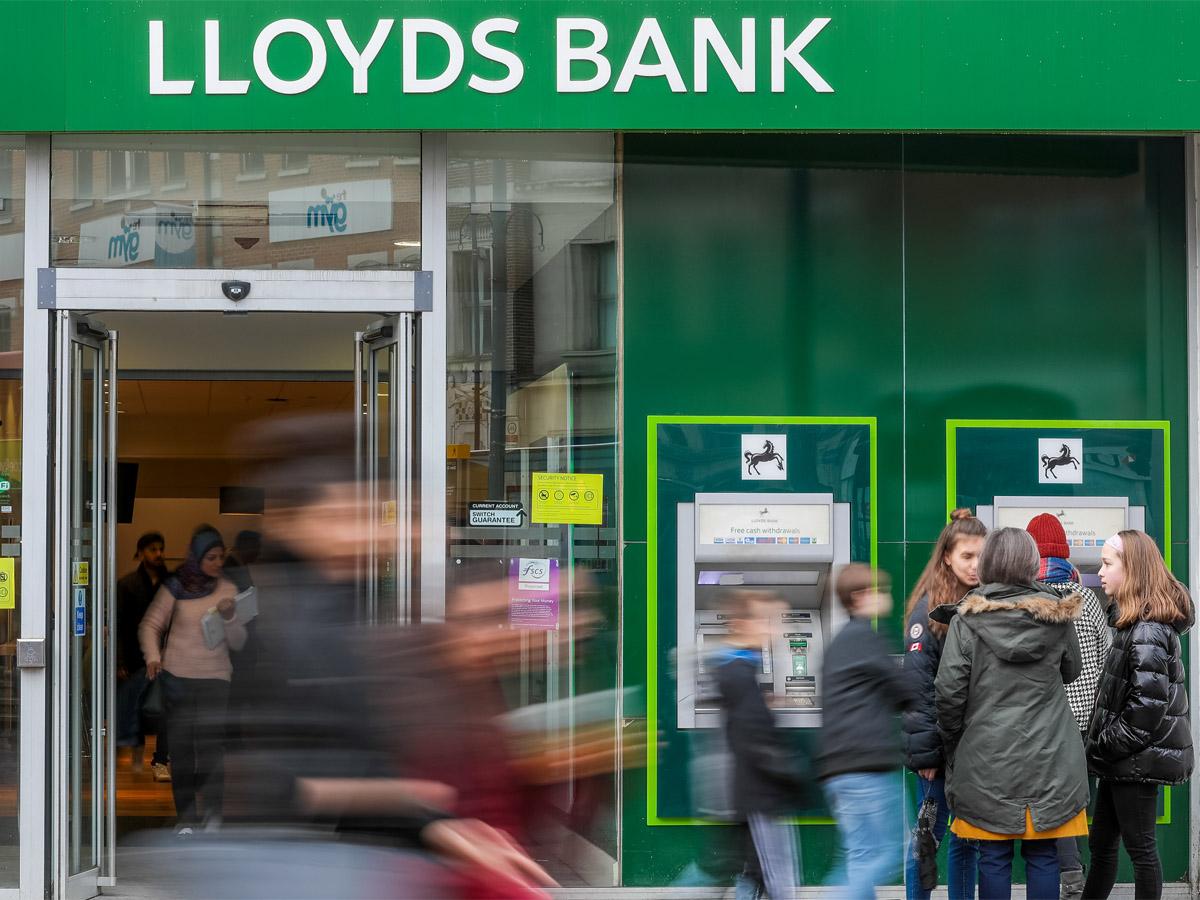Shareholders might have thought that Lloyds’ share price was going to get a reprieve after a volatile 2019.
Of all the major banks, Lloyds [LLOY] is the most exposed to the UK economy and has experienced its share of Brexit volatility. Expectations were that the Lloyds share price would be on the up on post-election hopes that the UK’s path out of the EU would be clearer. That wasn't to be.
Goldman Sachs’ decision to trim its share price target on Lloyds to 54p on 7 January - reiterating their ‘sell’ rating in the process - has hurt. Since the start of the year, Lloyds’ share price has tanked 10.4%.
But with a solid balance sheet, digital innovation and the potential for the UK economy to rebound, Lloyds’ share price could be in a very different place in five years.
How Lloyds’ share price has performed over 5 years
Over the past 5 years, Lloyds’ share price has dropped over 22.6%. While that’s better than Barclays [BARC] (-25%), it’s significantly worse than HSBC [HSBA] (-8.3%) and well off the wider FTSE 100 (+12.4%).
In May 2015, Lloyds’ share price traded at 89.5p. Since then, it has experienced a drop in value due to Brexit volatility. Last year, speculation over a no-deal mounted causing the share price to fluctuate, before rallying following the Tory election victory. The hope is that now Brexit looks to be underway, some certainty will return to the markets – and with it, some gains in a share price that is often considered a bellwether for the UK economy.
Lloyds’ growth drivers for the next five years
Green initiatives
Lloyds have pledged to halve the amount of carbon emissions it finances through personal and business loans by 2030. While Lloyds didn't go into details about the initiative, it's a bold move that feeds into their future product strategy. Lloyds are preparing to launch a green mortgage that will lend more money to households that reduce their energy consumption.
With Greenpeace shaming rivals like Barclays, and the Bank of England having launched its first climate stress test, this is an area that will become increasingly important over the next decade.
António Horta-Osório, Lloyds’ chief executive, said: “The next decade will be crucial for protecting the planet for future generations, and financial services has a critical role to play.”
“The next decade will be crucial for protecting the planet for future generations, and financial services has a critical role to play” - Lloyds’ chief executive, António Horta-Osório
Increased digitalisation
Lloyds is planning to cut hundreds of millions of pounds in annual technology costs by moving its computer systems to a new platform. Developed by Thought Machine, the cloud platform nicknamed "The Vault" will see 500,000 members’ data transferred over to it. If successful, the bank will move over more customer data.
Lloyds spends roughly £2.2 billion every year on tech, according to the Financial Times. A 35% to 40% reduction would save the bank £750 million annually. The hope is that any savings will translate to better margins.
£2.2billion
Amount spent every year by Lloyds on tech
UK economy bounces back
It's no secret that Brexit put foreign investors off investing in UK companies. But 2020 looks very different to the same time last year.
Tim Wallace in The Telegraph, who has picked Lloyds as his stock to watch in 2020, points out that Lloyds no longer has to contend with any PPI claims - last quarter these claims essentially wiped out the bank's profit margins.
Renewed economic confidence, together with Lloyds’ cost-cutting measures over the last five years, should see the bank return to profitably. Especially if consumer confidence returns, increasing demand for credit and mortgage products.
Obviously, leaving the EU on 31 January is just the start of a 12-month transitional period. How the UK manages negotiating trade deals with other nations will have a bearing on economic performance.
Time to buy Lloyds?
Lloyds carries a 75.37p average 12-month price target. Hitting this would represent 32% upside on the current share price. However, a 20.75x price to earnings multiple is more expensive than Barclays’ 17.14x, RBS’s 13.36x and HSBC’s 8.93x.
On the technical front, Lloyds has crashed through Investing Cube’s 58.57p support level. The next level below this is 50.44p, which was last seen back in October.
| Market Cap | £40.056bn |
| PE ratio (TTM) | 20.42 |
| EPS (TTM) | 2.80 |
| Quarterly Revenue Growth (YoY) | -7.50% |
Lloyds share price vitals, Yahoo Finance, 28 January 2020
However, Lloyds stock should perhaps make it onto income investors’ lists. In 2015 Lloyds paid a 0.75p dividend - its first in the six and a half years following the financial crash. In 2018, that had risen to 3.21p - a 321% increase. Right now, the bank has a 5.57% forward dividend yield.
Now could be the time to buy the Lloyds share price. Over the next five years, its green initiatives combined with pragmatic cost-cutting measures and digital innovation could put it on the front foot, especially with the spectre of Brexit finally lifting.
Disclaimer Past performance is not a reliable indicator of future results.
CMC Markets is an execution-only service provider. The material (whether or not it states any opinions) is for general information purposes only, and does not take into account your personal circumstances or objectives. Nothing in this material is (or should be considered to be) financial, investment or other advice on which reliance should be placed. No opinion given in the material constitutes a recommendation by CMC Markets or the author that any particular investment, security, transaction or investment strategy is suitable for any specific person.
The material has not been prepared in accordance with legal requirements designed to promote the independence of investment research. Although we are not specifically prevented from dealing before providing this material, we do not seek to take advantage of the material prior to its dissemination.
CMC Markets does not endorse or offer opinion on the trading strategies used by the author. Their trading strategies do not guarantee any return and CMC Markets shall not be held responsible for any loss that you may incur, either directly or indirectly, arising from any investment based on any information contained herein.
*Tax treatment depends on individual circumstances and can change or may differ in a jurisdiction other than the UK.
Continue reading for FREE
- Includes free newsletter updates, unsubscribe anytime. Privacy policy





